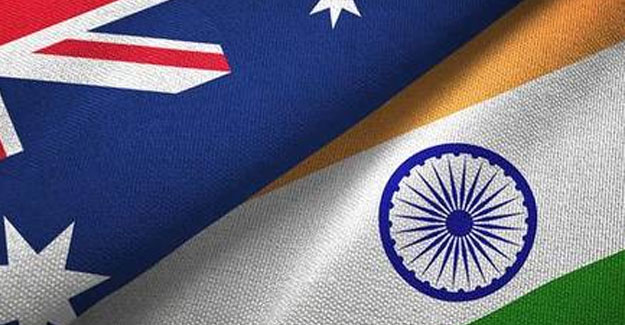
Australia May Consider FTA With India On The Lines Of RCEP
Australia is willing to consider a bilateral free trade agreement with India on the lines of the proposed Regional Comprehensive Economic Partnership (RCEP) agreement, that New Delhi chose to exit in November last year, that would capture the work already done between the two countries while the negotiations were on, the country's Trade and Tourism Minister Simon Birmingham has said. The Australian Minister met his Indian counterpart Piyush Goyal and discussed the future growth path in bilateral trade and investments which included a possible free trade agreement. Birmingham, however, added that his country wanted India to be part of the 16-nation RCEP at some point of time. "We want India to ideally enter RCEP at some stage. We will continue to make sure we hold that door wide open to India and encourage all other RCEP nations to do so as well," he said. Australia-India trade has grown steeply over the last decade but it is skewed in Australia's favour. In 2018-19, India's imports from the island-nation were valued at US$ 13.3 billion while Australia's imports from here were only at US$ 3.52 billion resulting in a trade deficit of almost US$ 10 billion. Birmingham said that Australia's export of coal to India, which the country required for its energy needs, was largely responsible for the deficit. South Korea To Sign RCEP With Or Without India South Korea will sign the Regional Comprehensive Economic Partnership (RCEP) pact with ASEAN countries, China, Japan, Australia and New Zealand in November 2020, irrespective of India's participation, claims a media report. In November 2019, Indian Prime Minister Narendra Modi announced to pull out of RCEP pact saying that India will not compromise on its core issues. The 15-nation group could offer a market worth US$ 125 billion to the domestic companies, across 24 identified product categories, as claimed by a World Trade Centre study. Commenting on South Korea's stand, Han-Koo Yeo, Deputy Minister for Trade Negotiations, South Korea, said, "We want India to come back to RCEP. We plan to sign (the pact) in November 2020, and we want India also to join for signing the RCEP." He also said, "This (if India signs RCEP) will be a great value addition to this 15-member RCEP. Also, there will a good opportunity for India because once this mega FTA is formed, this regional value chain will develop inside this RCEP community." He also said that if India does not join RCEP, its negative impact would be felt in the long run by the country as well as other constituent countries. The proposed RCEP members combined account for 39% of global GDP and 30% of global trade. Also, these countries account for 26% of global foreign direct investment (FDI) and 45% of the total global population. India Keen To Keep Future FTAs With RCEP Nations Less Ambitious The possible free trade pacts being explored by India with some of the individual members of the Regional Comprehensive Economic Partnership (RCEP) bloc like Australia, South Korea and Japan, are unlikely to be as ambitious as the original agreement being negotiated with the 16-member group. "We don't want the same problems that we had with the RCEP to get reflected in new pacts which we may get into with some of the members individually. That is why it makes sense for us to not go for very high levels of opening up," according to government officials. Countries such as Australia, New Zealand, South Korea and Japan are among the first ones with which India is ready to consider individual agreements to begin with, the official said. India, however, has not yet officially closed its doors on the RCEP. According to the Ministry of External Affairs, if the RCEP members offer India a deal that takes care of all its concerns, it could consider getting back to the negotiating table.
Textile Excellence
If you wish to Subscribe to Textile Excellence Print Edition, kindly fill in the below form and we shall get back to you with details.












